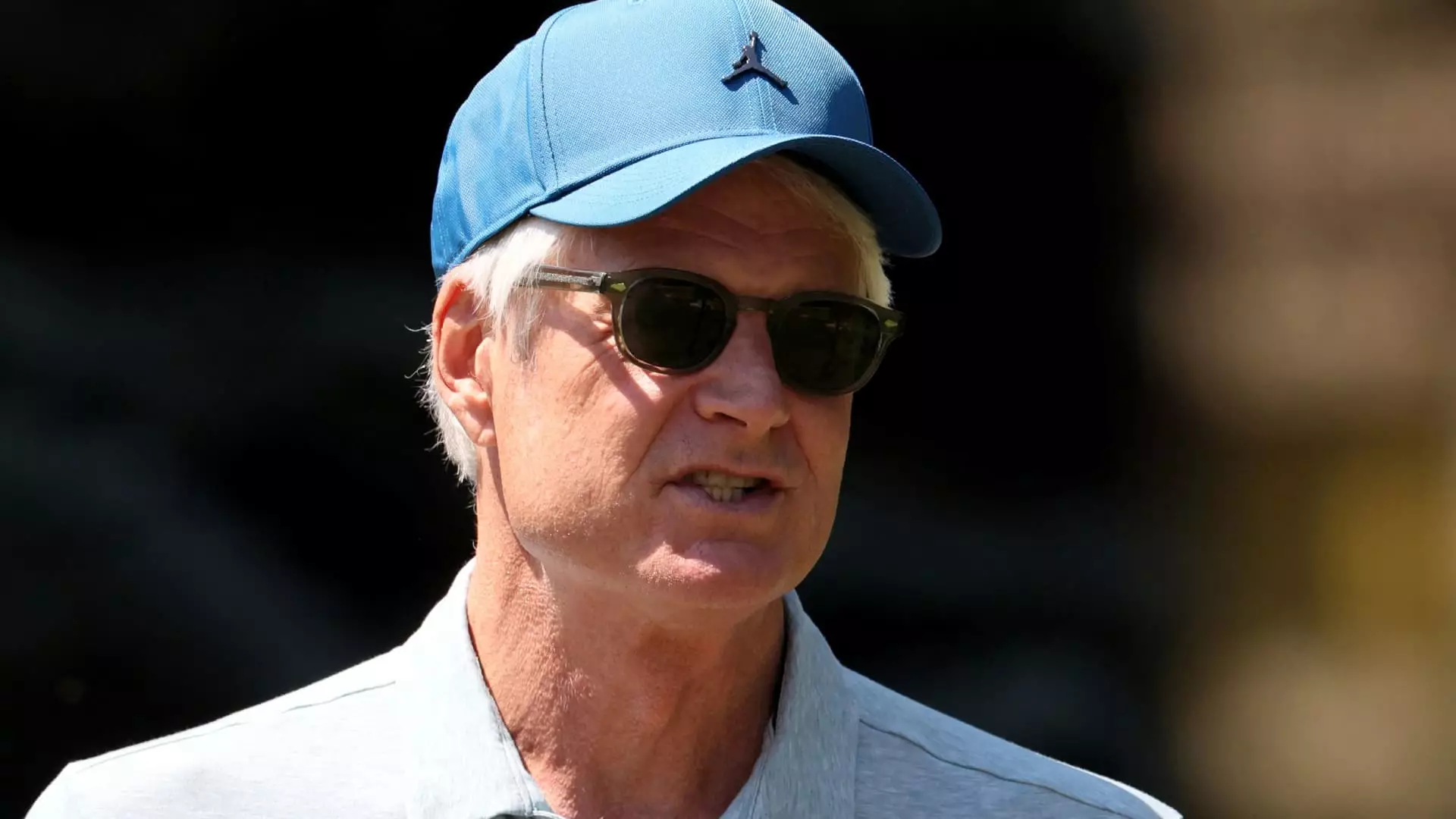On a surprising note, Nike recently announced a significant leadership transition, with CEO John Donahoe set to depart from his role on October 13. Donahoe, who took charge in January 2020, will be succeeded by Elliott Hill, a long-time veteran of the company. Hill’s decision to come out of retirement to step into this pivotal role is both intriguing and telling about Nike’s pressing needs. As the company grapples with a turbulent market amid a drastic shift in its retail strategy, Hill’s return could signal a strategic recalibration for Nike.
Nike’s reshaping of its business model began as a bold move to prioritize direct-to-consumer sales, aiming to strengthen its presence through branded outlets and an enhanced online ecosystem. However, this pivot has not come without its challenges. Critics contend that during this transition, Nike has failed to maintain the level of innovation that once defined its sneaker offerings. Instead of groundbreaking releases that captivated consumers, the focus shifted towards sales logistics and operations, leaving some fans yearning for the brand’s signature creativity in product development.
The fallout from this strategy was starkly illustrated in late June, when Nike reported a steep anticipated decline in sales. A projected 10% drop was alarming, particularly when juxtaposed with analysts’ predictions of a much less significant drop of only 3.2%. This revelation marked one of the company’s worst trading days, igniting speculation about leadership changes. Despite previous assurances of Donahoe’s leadership from co-founder Phil Knight, the market’s reaction hinted at unease among investors and stakeholders about the company’s direction.
Elliott Hill’s return to Nike, after retiring in 2020, is an interesting strategic choice that reflects the company’s desire to rekindle its innovative spirit. Having started as an intern over three decades ago, Hill ascended through the ranks, accumulating a wealth of experience within the organization. His tenure as president of the consumer and marketplace division provided him with critical insights into Nike’s operations and community. Mark Parker, Nike’s executive chairman, echoed this sentiment, emphasizing Hill’s deep understanding of Nike’s culture and strategic vision, which he believes makes him the ideal choice to lead the brand into its next phase.
Hill’s previous tenure was characterized by a focus on nurturing relationships with employees and partners, effectively making him a well-respected figure within the organization. His leadership style, marked by collaboration and innovation, could be a breath of fresh air at a time when morale appears to reflect the company’s challenges. Senior research analyst Jessica Ramirez acknowledged the significant work ahead for Hill, particularly in revitalizing company culture, which has reportedly suffered as a consequence of recent challenges.
Adapting to New Market Dynamics
Nike’s recent downward slide can be attributed to various market dynamics that unfolded during the post-pandemic retail environment. The company’s strategy to cut ties with its wholesale partners was initially aimed at enhancing brand control but inadvertently opened the door for emerging competitors. Brands like On Running and Hoka have capitalized on this opportunity, encroaching on the market share that Nike traditionally dominated.
This competitive landscape is further complicated by shifting consumer preferences that have surfaced in post-COVID-19 realities. As shoppers increasingly opt for experiences and digital interactions, Nike must navigate the dual challenges of regaining its market foothold while also innovating product lines and experiences that resonate with its audience. Elliott Hill, with his extensive experience within the company, may possess the strategic acumen needed to guide these efforts effectively.
The Road Ahead for Nike
In light of these dynamics, the transition to Hill as CEO represents a potential turning point for Nike. His emphasis on innovation, partnership cultivation, and a return to the company’s core values may invigorate the organization and help it regain lost momentum. Hill expressed his excitement about reconnecting with employees and entering a new chapter of leadership where he can contribute to the company’s growth.
As the brand embarks on this new journey, there remains an essential need for an agile response to market conditions, combined with an unwavering commitment to the kind of innovation that has been Nike’s hallmark. While challenges will inevitably emerge along the road, Hill’s return reflects both a nod to Nike’s rich history and an optimistic vision for a rejuvenated future. The efforts to streamline operations and reinvest in crucial growth sectors, as indicated by past restructuring plans, must be paired with the infusion of creativity and optimism that Elliott Hill embodies.
Given the weight of challenges confronting Nike, Elliott Hill’s leadership could be the key to rekindling the innovative spirit and market prowess that once made the brand an indomitable force in the sneaker and athletic apparel arenas.

